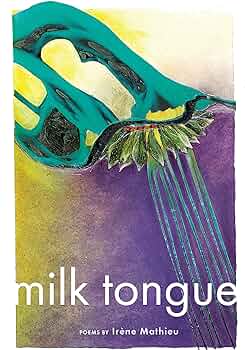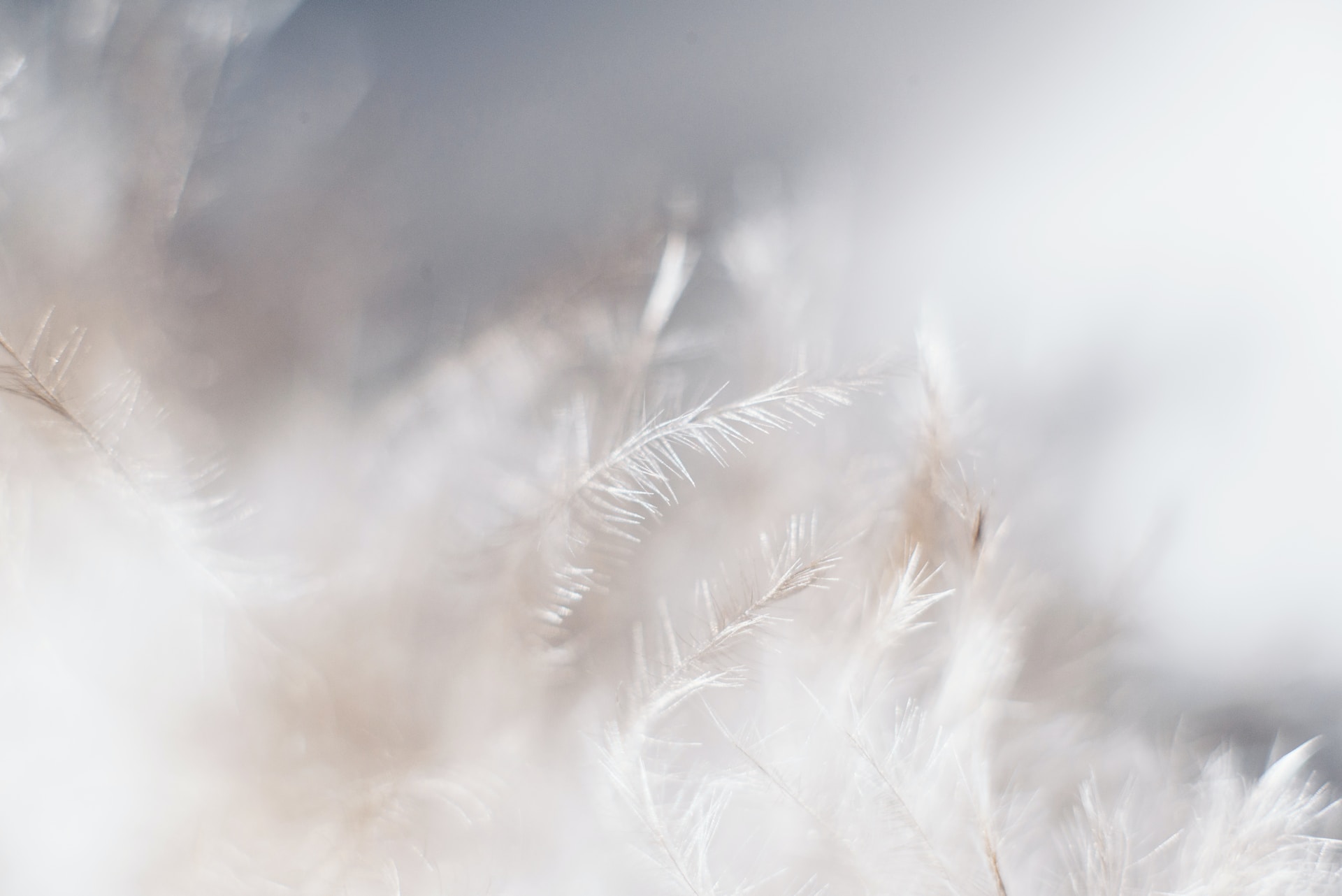by Nicole Yurcaba

Deep Vellum delivered Irene Mathieu’s milk tongue to the literary world in June 2023. The publication of this poetry collection quietly slipped beneath the poetry world’s radar. While Mathieu’s collection attempts to tackle pertinent social issues like racism, sexism, and generational trauma, the poems’ forms do not necessarily benefit each poem’s function. Nonetheless, despite this criticism, I did find three poems worth highlighting.
“the forest fire of family trees” celebrates the quirky traits which unite a couple. For example, the speaker delights in small eccentricities like when “neither of us can / fry an egg without public radio / chattering in our ears.” These gentle domesticities unravel into a quiet thread of generational traumas. The speaker declares there “are worse blueprints for a home, / like what my grandfather taught / my uncle.” Lines like “I hear myself say exactly / what my mother would say” possess a tonal duality that cues readers into the speaker’s complicated intricacies lineage often presents, particularly when the speaker confesses, “it’s not that I’m / ashamed to share all my DNA / and most of my life with these / two people.” At this point, the poem shifts into a careful, almost clinical, conversation about “the odor of toxins” which “when rearranged spell door.” The speaker implies that the generational toxicity one endures for a lifetime becomes inescapable, no matter the form it takes. Clinching the voice and images into place in this poem is the left-aligned, succinct lines create the speaker’s bluntness and make the poem one of the more accessible ones in the book.
“what we call sanity is just an empty road through the mountains” is the collection’s second poem. At first, it’s experimental form might disengage many readers. It begins halfway down the page, and as it continues, its lines transform from couplets, to a single three-lined stanza, and into a single line extended by large tabs which appear in between words. The poem pokes at a philosophical take about one’s journey, and the speaker sprinkles the journey with visions of a “seedy motel” and a “lane lined with roadkill.” The poem grows more abstract as the speaker encourages the reader to tell an “old woman” at “the desk / in the lobby” to ask for room 309 and “then sleep. sleep.” The final line’s reliance on the blank space between words makes the poem even more abstract and dreamlike, and the form sets the poetic stage for subsequent poems which rely heavily on such techniques. However, the subtle experimentation in this poem is more emotionally, and intellectually, effective than the way the author uses the technique in other poems.
Eventually, after wandering through various other poetic experimentations which leave readers feeling a bit aimless, readers discover “seventh attempt at going home.” Part of this poem’s appeal is its immediate conversational tone. However, the poem immediately plunges into socio-political depths. The speaker discloses, “All weekend I’ve been waiting / to give our neighbors the box of / cookies & card we bought: / Congratulations on your citizenship!” The poem segues into a critique of American culture, one rooted in “suspicion” and impersonal connections. A sly critique of America’s overreliance on guns appears in the speaker’s observation that the reason the neighbors do not answer their door is because “who can say if it’s a walking gun.” Imagery of the centuries-long violence against the African-American community centers the poem as the speaker reflects, “Four centuries in, this place has offered us / only everything and nothing.” The poem is lengthy and cycles through the speaker’s interactions with immigrants as well as their insights about America’s recent, inhumane. Trump-era refugee policies. A sense of otherness and rejection permeates the poem’s conclusion as the speaker admits, “If I’m honest, that means I’m still / learning how to be a home.” The speaker combines America’s socio-political failures with another emerging crisis millions of Americans deny–that of climate change: “I know that water is neither created nor destroyed– / just melts & freezes & melts & freezes / & melts & melts & melts.” This dramatic shift, nonetheless, is brief, and the speaker returns to their initial thoughts about their neighbors, the cookies, and the superficiality behind the speaker’s own act of giving. Ultimately, “seventh attempt at going home” might be milk tongue’s most powerful, and most engaging, poem.
According to New Haven Science, a successful experiment is “interesting, important, organized, valid, repeatable.” A determination as to whether or not milk tongue is truly a successful experiment probably varies reader to reader. However, after spending nearly one week with the collection and whole-heartedly trying to engage with and actually enjoy its offerings, I’ve decided to bestow this collection with the So Experimental It Defeats the Collection’s Purpose Award — that is if I had such an award to give.
Nicole Yurcaba (Ukrainian: Нікола Юрцаба–Nikola Yurtsaba) is a Ukrainian (Hutsul/Lemko) American poet and essayist. Her poems and essays have appeared in The Atlanta Review, The Lindenwood Review, Whiskey Island, Raven Chronicles, West Trade Review, Appalachian Heritage, North of Oxford, and many other online and print journals. Nicole teaches poetry workshops for Southern New Hampshire University and is a guest book reviewer for Sage Cigarettes, Tupelo Quarterly, Colorado Review, and The Southern Review of Books.



Add your first comment to this post